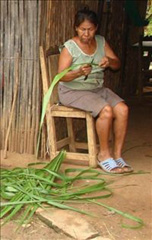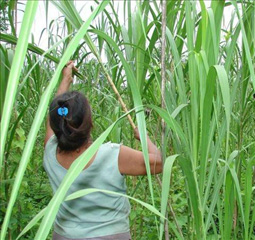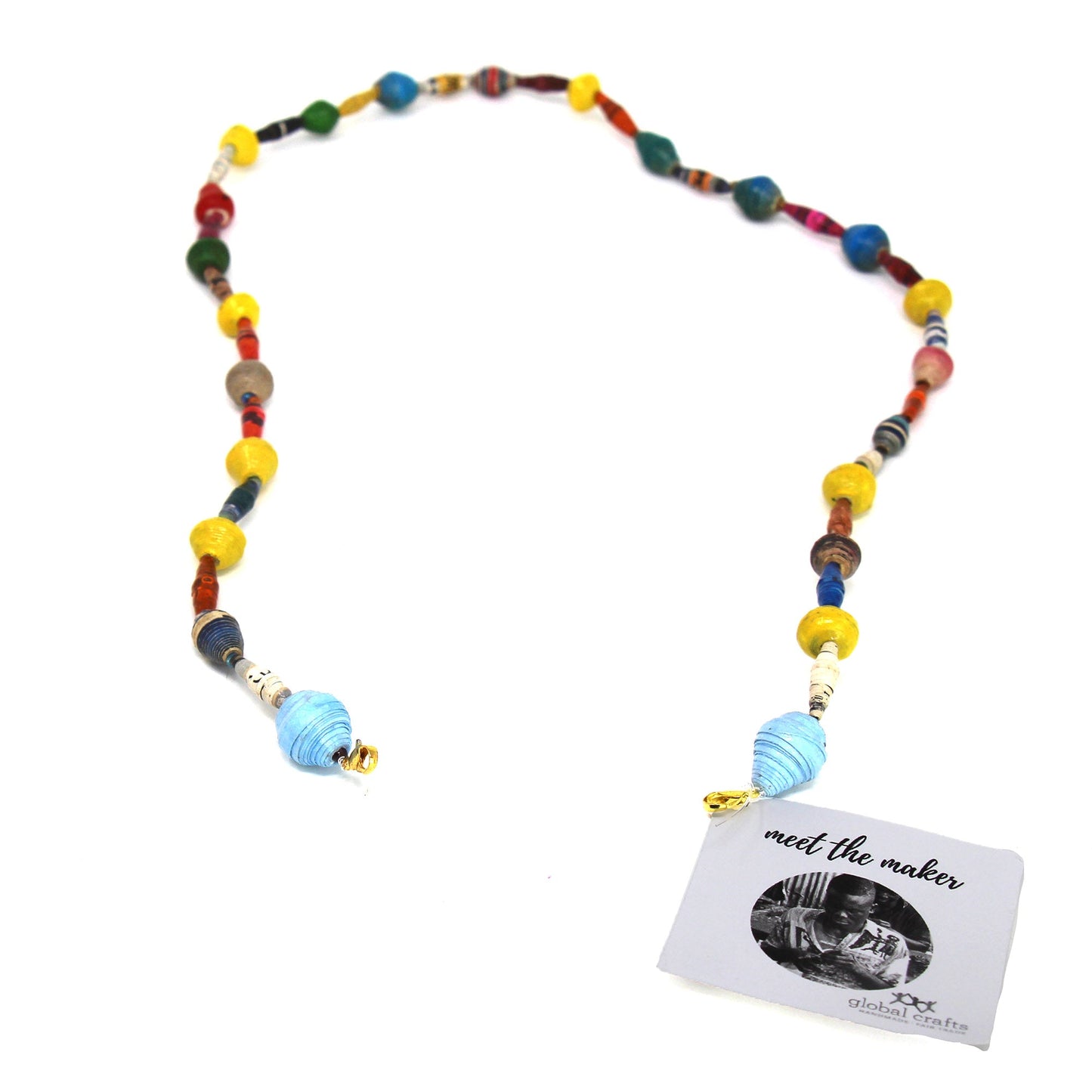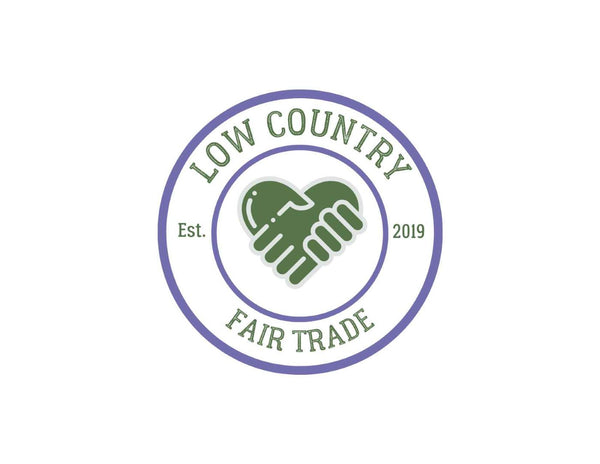Global Crafts
Cadena de cuentas de papel para mascarilla/gafas, formas mixtas de colores
Cadena de cuentas de papel para mascarilla/gafas, formas mixtas de colores
No se pudo cargar la disponibilidad de retiro
¡Agregue un toque de otro nivel a su mascarilla o anteojos con este elegante cierre de cadena hecho con cuentas de papel reciclado! Además de ser otro bonito accesorio, ayudan a mantener las mascarillas puestas en todo momento, al mismo tiempo que resuelven la situación de que las orejas cuelguen o la correa de la barbilla al quitarse temporalmente la mascarilla. ¡Una forma colorida de realzar tu estilo socialmente responsable!
- La cadena de cuentas de papel mide aproximadamente 84 cm (33 pulgadas) de largo.
- Broche de langosta de latón de 1,2 cm (1/2 pulgada) para asegurar los extremos de la máscara y tirantes de goma para fijar a los brazos de las gafas.
- Hecho de cuentas de papel reciclado. Los colores variarán, pero estarán en la familia de colores que figura en el título.
- MASCARILLA NO INCLUIDA
La historia detrás del arte:
Estas cuentas de papel únicas están hechas en Kisumu, Kenia, por talentosos artesanos que reciclan revistas y papeles desechados, transformándolos en joyas y accesorios funcionales y elegantes. Los papeles se rasgan y luego se enrollan para formar las cuentas. Una vez terminadas, las cuentas de papel se sellan con muchas capas de barniz brillante a base de agua. Debido a la amplia variedad de productos de papel reciclado utilizados, las cuentas hechas a mano pueden venir en todos los tamaños, formas, colores y patrones, lo que realmente habla de la naturaleza única de cada pieza.
Share
About the Artisans
About the Artisans
 Joyeria Semilla meaning Seed Jewelry is a small fair-trade workshop in the Andean town of Villa de Leyva, Colombia. Girasol Taborda, a local artisan and social entrepreneur, started the workshop in the mid-1990s.
Joyeria Semilla meaning Seed Jewelry is a small fair-trade workshop in the Andean town of Villa de Leyva, Colombia. Girasol Taborda, a local artisan and social entrepreneur, started the workshop in the mid-1990s.
Joyeria Semilla’s objective is three-folds; to create new jobs, revive Colombia's handicrafts sector and to motivate locals to better manage their natural resources. The organization works primarily with socially and economically disadvantaged youths, single mothers and people with disabilities in the area. The company offers free training in product design, technical training and marketing to new members. Joyeria Semilla has trained them in the craft of jewelry-making.

Caña Flecha or “Gynerium Sagittatum” is a locally found palm tree in the regions of the Caribbean coast. The leaves from this plant are used for making jewelry, woven hats, bags and baskets. The Zenú Indians were and their descendants inherited the tradition of picking veins of the green palm leaf for weaving. These veins were made into woven hats and other products for their personal use.
The Zenú culture is said to have existed between 200BC to1600AD. With the arrival of the colonizers in the 16th century, the indigenous community declined of unknown reasons. Today a very small population remains that claims the inheritance of the almost extinct Zenú tribe. Known for their skills in the construction of major waterworks, canals and irrigation system along with being skilled goldsmiths, examples of their accomplished craftsmanship are found in various museums around the world. Their larger means of subsistence were hunting, farming, fishing and trading.
Caña Flecha is found in abundance in the region, and hence makes for a sustainable and naturally available raw material for these products. Every bit of the plant is utilized – from using in building walls and roofs in houses to food for cattle and medicinal purposes. It is from the central vein of the leaf that the fibers for weaving are obtained. After the hard surface is peeled off, the fibers are left in the sun to dry and undergo a natural tinting process; these fibers are barely about 1 millimeter in thickness and hence call for a lot of skill and patience to weave with. The dried fibers are then processed for natural coloration - some are boiled with lemon to whiten them and some are treated with mud and boiled with plantain leaves to blacken them. The designs are based on ancient motifs and mathematical representations, which are inspired by the early Zenú culture.




















